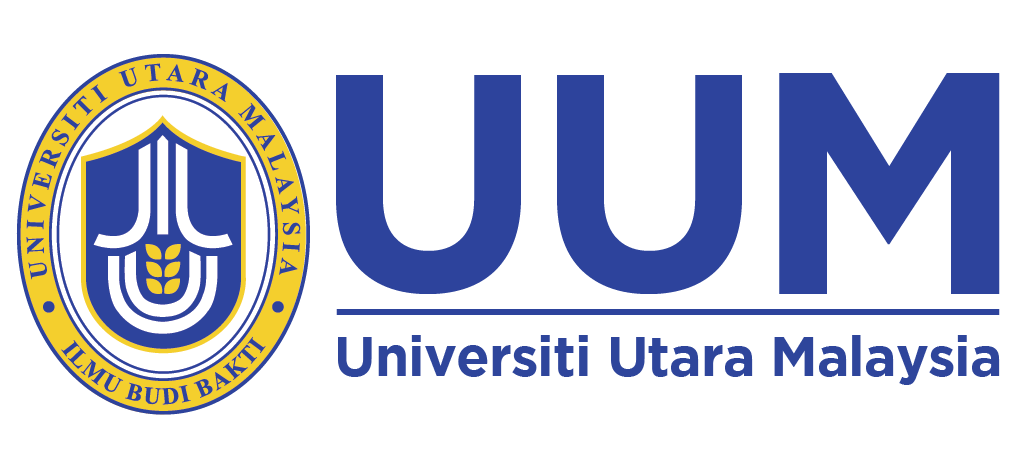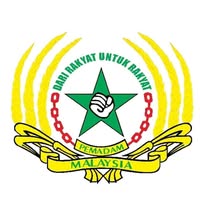SCHOOL OF LAW, UNIVERSITI UTARA MALAYSIA
SEMINAR ON LAW & SOCIETY 2024 (SOLAS VII)
28 and 29 May 2024 (Tuesday - Wednesday) . 8:30 am - 5:30 pm
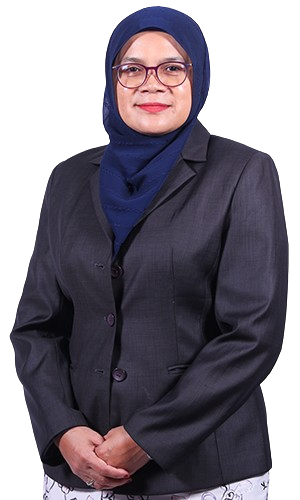
Prof. Dr. Harlida Abdul Wahab
MESSAGE FROM THE DEAN
Ladies and Gentlemen, Distinguished Guests, Respected Academia, and Dear Students
It is with immense pleasure that I, welcome you all to this momentous occasion – the opening ceremony of Seminar on Law and Society 2024 (SOLAS VII). On behalf of the School of Law and the University Utara Malaysia, I extend a heartfelt welcome and express my deepestgratitude for your presence here today.
This seminar represents a significant milestone in our university's ongoing commitment to research and innovation. The School of Law is committed to pursuing such an agenda and in fact, this is the 7th time we have organized SOLAS as part of our annual event. Such commitment embodies our unwavering dedication to providing a platform for continuous learning and intellectual exchange.
The theme of this seminar, “Harmonisation of Shariah and Civil Law: Uplifting the Madani Society”, resonates deeply with the challenges and opportunities that shape our world today. SOLAS VII corresponds to our school’s devotion to fostering excellence in legal education and contributing to the development of a just and prosperous Malaysia. As we strive towards a Madani society – one that is progressive, inclusive, and grounded in Islamic values – the harmonisation of Shariah and civil law becomes a critical conversation. The Malaysian legal landscape is unique, with Shariah law guiding Muslims in personal matters and civil law governing most other aspects of life. While this system has served us well, ongoing efforts to achieve greater harmonisation can further strengthen our nation. The path towards achieving greater harmonisation is not without its challenges. Differing sources of law, the division of authority between federal and state governments, and the need to balance religious beliefs with broader legal principles all require careful consideration.
However, there is reason for optimism. Ongoing efforts through legislation, judicial interpretation, and academic discourse are paving the way for a more cohesive legal system. With more than 30 research papers being submitted, I believe that this seminar serves as a valuable platform to explore these efforts, share diverse perspectives, and identify opportunities for further progress.
I have full confidence that SOLAS VII will be a tapestry woven with knowledge, inspiration, and the seeds of future innovation. Thank you once again for joining us. I wish you all a successful, intellectually stimulating, and profoundly rewarding seminar. Let the learning commence!
Thank you and best regards
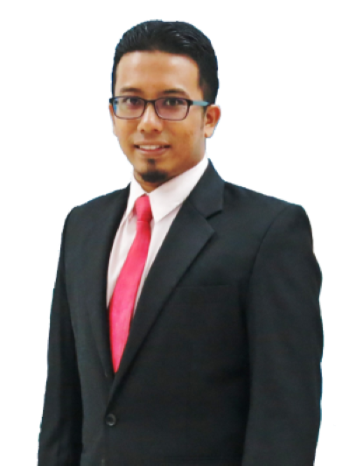
Dr. Muhammad Hafiz Badarulzaman
MESSAGE FROM THE DIRECTOR
Greetings to all participants and Welcome to Kedah.
It is with great pleasure and honor to welcome presenters and participants to this esteemed Seminar on Law and Society (SOLAS VII) focusing on the theme "Harmonization of Shariah and Civil Law: Uplifting The Madani Society." This theme is not only timely but also of profound importance as we navigate the complexities of modern legal systems and strive for a cohesive and just society.
Our seminar is a testament to our collective commitment to explore and address the intricate relationship
between Shariah and Civil Law. This seminar brings together a diverse group of participants, including esteemed scholars, passionate students, and industry experts, all united by a common goal: to understand and enhance the harmony between these two pivotal legal frameworks. We are privileged to have a rich array of contributions in the form of 30 conference papers, each offering unique insights and perspectives on the harmonization of Shariah and Civil Law. These papers are organized into three distinct tracks, reflecting the multifaceted nature of our discussions. The first track delves into Islamic Legal Issues, where we will explore the foundational principles of Shariah, its application in contemporary contexts, and the potential for integration with civil law. This track is crucial as it provides a deep understanding of Islamic jurisprudence and its relevance in today's legal landscape.
The second track addresses Common Legal Issues, bridging the gap between Shariah and civil law.
Here, we will examine areas of convergence and divergence, seeking pathways to synthesize these legal systems in ways that uphold justice, equity, and the rule of law. This track will foster dialogue on how we can align legal principles to serve the needs of a diverse society while respecting the core tenets of both legal traditions.
The third track focuses on Social Issues, highlighting the impact of legal harmonization on societal well-being. We will discuss how integrated legal frameworks can contribute to social justice, economic development, and the overall upliftment of Madani society. This track emphasizes the practical implications of our legal discourse, ensuring that our discussions translate into tangible benefits for the community. I am particularly excited about the presentations from our postgraduate students, who represent the future of legal scholarship and practice. Their fresh perspectives and innovative ideas are vital as we continue to evolve and adapt our legal systems to meet the demands of a changing world.
In addition to our academic discussions, we are also fortunate to have contributions from industry experts. Their practical insights will provide a valuable complement to our theoretical explorations, bridging the gap between academia and the real-world application of legal principles. As we embark on this intellectual journey together, I encourage all participants to engage actively, share your insights, and challenge conventional thinking. Our goal is not just to discuss and debate but to forge a path forward that reflects the true spirit of harmonization—a path that respects and integrates the richness of Shariah and civil law, ultimately uplifting Madani society.
In closing, I extend my heartfelt gratitude to the organizers, speakers, and participants for your dedication and contributions. Let us seize this opportunity to learn, collaborate, and inspire each other as we work towards a more just and harmonious legal landscape.
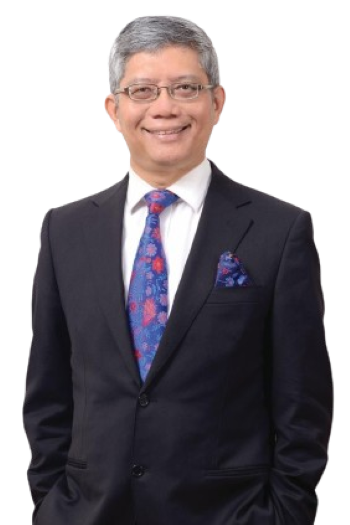
Dato' Azmi Mohd Ali
KEYNOTE SPEAKER
Dato’ Azmi Mohd Ali (64) is the Senior Partner of Azmi & Associates, a full service corporate and commercial law firm of approximately 98 lawyers, based in Kuala Lumpur, Malaysia. The firm, Azmi & Associates under his leadership is recognized as one of the largest law firms (by size) in Malaysia.
He holds LL.B (Hons.) from the University of Malaya (1984) and LLM in US & Global Business Law from the Suffolk University, Boston, U.S.A (2011). He has also attended a short program on Enterprise Innovation at Cambridge University Business School.
He is an experienced and is one of the leading corporate lawyers in Malaysia with expertise in the areas of mergers and acquisitions, joint ventures, cross-border transactions, project finance, privatisation, energy, oil & gas and foreign investments.
Prior to his venture in private practice, Dato' Azmi spent 6 1⁄2 years as an in-house counsel of PETRONAS. He was involved in projects of national importance for Malaysia and negotiated and concluded the NGPSA, a major gas development project for Malaysia, in 1990.
His accomplishments as a corporate lawyer are well noted and have earned him numerous awards, accolades and recognitions from reputed international legal publications. He won the prestigious Legal 500 Hall of Fame for M&A/Corporate for four consecutive years, 2020-2024, Distinguished M&A Practitioner for AsiaLaw 2020, International Law Office 2016 Clients Choice Award for Malaysia in Mergers & Acquisitions, Thompson Reuter/ALB Dealmaker of the year 2024 for Malaysia and other international publications.
Currently, he is a director of 2 listed companies and Pelaburan Hartanah Berhad. He had previously served as a Director of Sime Darby Berhad and 5 other listed companies and a bank.
He has been involved in strategic management of a number of litigation cases, as well as arbitration cases (with others) under the UNCITRAL Arbitration Rules and the LCIA Rules.
He has also acted as an arbitrator in one arbitration case under AIAC Arbitration Rules.
He is a member of ICC Malaysia (International Chamber of Commerce Malaysia), member of the Panel of Conciliators and Panel of Arbitrators, International Centre for Settlement of Investment Disputes (ICSID).
E-PROSIDING
PRESENTER
Dr. Nor Ashikin Md Nasir
Pusat Pengajian Undang-undang, Universiti Utara Malaysia
Pengenalan Terhadap Perlaksanaan Kaedah Hakam Sebagai Penyelesaian Konflik Perkahwinan Menurut Undang-Undang Di Negeri Kedah Darul Aman
PROF. MADYA DR. CHE THALBI MD ISMAIL
Pusat Pengajian Undang-undang, Universiti Utara Malaysia
Hybrid working: Development Post Panemic Covid-19
DR. HAFIDZ HAKIMI HARON
Pusat Pengajian Undang-undang, Universiti Utara Malaysia
The Preliminary Study on Online Hate Speech Among Youth in Malaysia: An Examination of The Existing Legal Approach
Prof. Dr. Nuarrual Hilal Md Dahlan
Pusat Pengajian Undang-undang, Universiti Utara Malaysia
Unravelling The Enigma of Abandoned Housing Projects In Malaysia: An Illuminating Insight Into Islamic Land Law
COLLABORATORS AND SPONSOR
